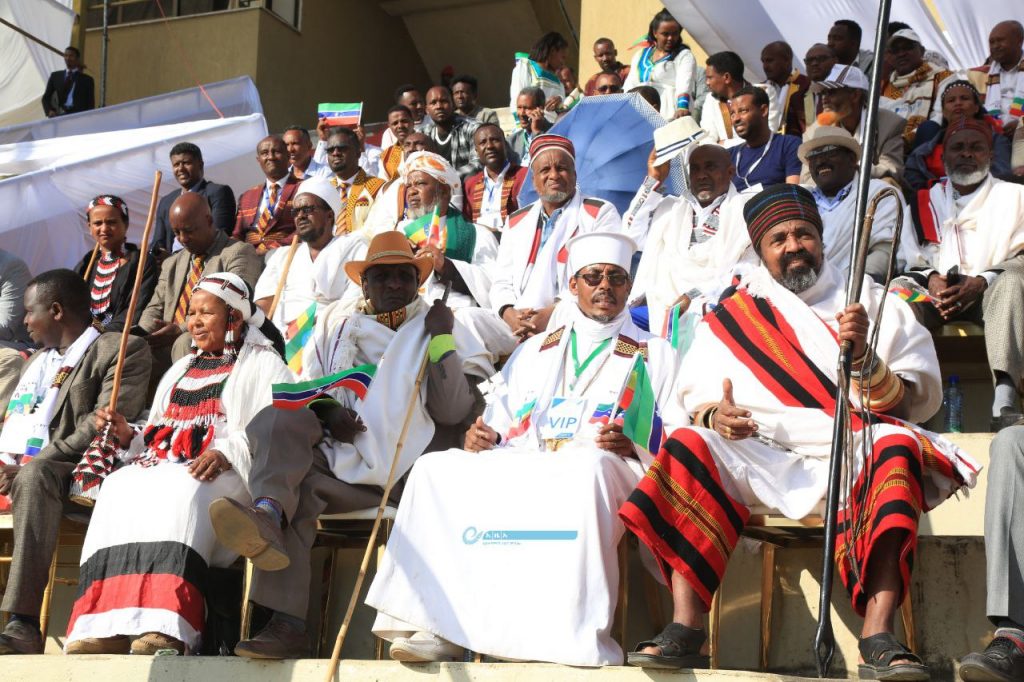Nations, Nationalities and Peoples’ Day (Ethiopia)- December 8th

Nations, Nationalities and Peoples’ Day: Celebrating Ethiopia’s Rich Cultural Diversity
Nations, Nationalities and Peoples’ Day, celebrated annually on December 8th, is a national holiday in Ethiopia that honors the country’s rich cultural diversity and the rights of its ethnic groups. The day commemorates the adoption of the 1995 Ethiopian Constitution, which granted equal political, cultural, and linguistic rights to the country’s many ethnic groups. It officially started being observed in 2006, symbolizing the unity and tolerance among Ethiopia’s 80+ distinct ethnic communities.
The Historical Context of Nations, Nationalities, and Peoples’ Day
The foundation for Nations, Nationalities, and Peoples’ Day was laid in 1995 with the establishment of the Federal Democratic Republic of Ethiopia. Under this new political framework, the Constitution granted autonomy to Ethiopia’s regions, allowing each ethnic group to maintain its cultural identity, language, and political autonomy. This was a significant shift from the previous centralized system, where Ethiopia’s ethnic diversity was often overlooked or suppressed.
The Constitution not only recognized the importance of Ethiopia’s many peoples but also ensured their right to self-determination. This historic move marked the beginning of a new era where the country’s rich ethnic and cultural diversity could be celebrated and cherished.
How the Day is Celebrated
Nations, Nationalities and Peoples’ Day is an occasion for Ethiopians to celebrate their unity while honoring the distinct cultures and languages that contribute to the nation’s diversity. Here are some of the key aspects of the celebrations:
- Cultural Festivals and Performances
The highlight of the day is the cultural festivals that take place across the country, where each of Ethiopia’s 80+ ethnic groups is represented. These festivals feature traditional music, dance, and performances that reflect the unique cultural heritage of each group. Participants wear traditional attire, and the events serve as a colorful display of Ethiopia’s cultural vibrancy. - Official Ceremonies
Government officials, including the Prime Minister, take part in formal ceremonies that emphasize the importance of unity and cooperation among Ethiopia’s nations, nationalities, and peoples. Speeches are made about the achievements of the country in embracing diversity and the continued importance of political and cultural equality. - Public Gatherings and Community Involvement
In addition to large-scale celebrations, smaller community events are held in cities and rural areas alike. These gatherings focus on promoting tolerance, understanding, and cooperation among Ethiopia’s diverse communities. They also include educational programs and discussions about the significance of Ethiopia’s federal system and its impact on the country’s development. - Traditional Foods and Regional Exhibits
A major part of the celebration is the sharing of food and regional specialties. Communities come together to prepare and enjoy traditional Ethiopian dishes, fostering a sense of solidarity and appreciation for regional flavors and cuisines.
The Significance of Nations, Nationalities and Peoples’ Day
This holiday is not only a celebration of Ethiopia’s cultural diversity but also a reflection of the country’s progress toward ensuring equality and self-determination for all its ethnic groups. Nations, Nationalities and Peoples’ Day underscores the importance of peaceful coexistence, mutual respect, and the recognition of cultural and linguistic differences.
Ethiopia’s commitment to diversity and federalism has played a crucial role in maintaining stability and unity within the country, despite its complex ethnic makeup. The day serves as a reminder of the country’s unique approach to governance and its ongoing efforts to promote inclusivity, tolerance, and national unity.
Nations, Nationalities and Peoples’ Day is a vital celebration of Ethiopia’s journey towards a democratic, inclusive, and culturally rich society. It honors the country’s diverse ethnic groups, their contributions to the nation’s progress, and their right to self-expression. As Ethiopia continues to embrace its federal system, the holiday serves as a reminder of the value of unity in diversity and the ongoing efforts to build a peaceful and prosperous future for all of Ethiopia’s peoples.
